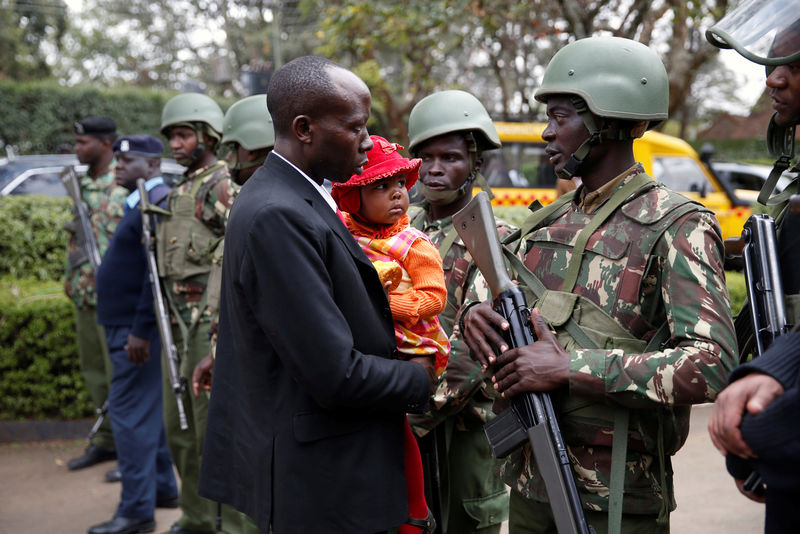By John Ndiso and Katharine Houreld
NAIROBI (Reuters) - Kenya's education minister said on Monday that arson was to blame for a weekend fire that killed nine pupils at a girls' boarding school and that there had been similar attacks on other schools around the country.
More than 120 schools around the country were set on fire last year, according to research by a Canadian professor. Almost none of the cases has been successfully prosecuted.
Minister Fred Matiang'i said some arson attacks had been related to fights over staff appointments in schools, where senior positions can bring financial rewards.
"It was not an accident, it was arson," Matiang'i said of the blaze on Saturday at Moi Girls School in the capital in which nine girls were killed and 10 injured.
Matiang'i said there had been a spate of arson attacks on schools around the country, including in the coastal city of Mombasa and the western city of Kisumu. He did not give the total number of attacks.
"Some of the fires we have faced before in the sector are related to that kind of thing, politicization of school headship, politicization of responsibility in the education sector. It is not right," he said in a televised press conference.
"We cannot resolve a conflict on the headship of the school by burning a school."
Kenya is East Africa's largest economy but unemployment is high and corruption is rife, making life difficult for many ordinary people.
Control of a school can mean not just a government salary but an opportunity to extort extra money from students and parents in fees or other charges.
But many of the fires are set by students protesting harsh discipline, poor teaching and corruption, according to Canadian Elizabeth Cooper, assistant professor of International Studies at Simon Fraser University.
"Boarding school life is often experienced by students as excessively rigid and authoritarian," she wrote in an article about the trend last year.
Students she interviewed complained about poor food, scarce teaching materials, harsh teachers and management that ignored their concerns. Many compared their schools to prison.

"The destruction of their dorms means that they will be sent home and given some respite from their intensive boarding school lifestyles," she wrote. "We can likely expect more fires next year."